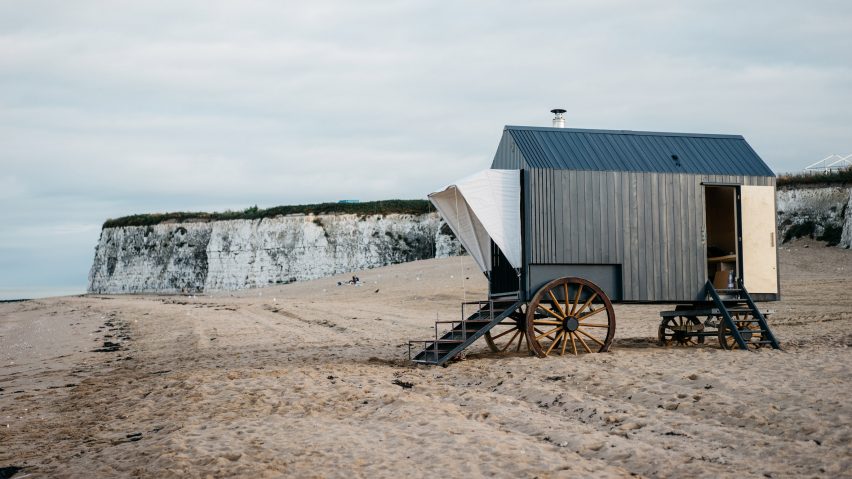
Haeckels' Victorian bathing machine warms up winter seaside dippers
Skincare brand Haeckels has built a traditional wood-burning sauna on the sands of Margate beach, in a bid to "reacquaint the community" with the health-giving properties of their local waters.
Located in the town of Margate on Britain's southeast coast, the bathing machine is constructed from traditional sauna wood planks, with oak wheels attached to a steel frame.
It features a waxed cloth awning that can be retracted and steps that double up as a door and can be pulled up to make the bathing machine secure.
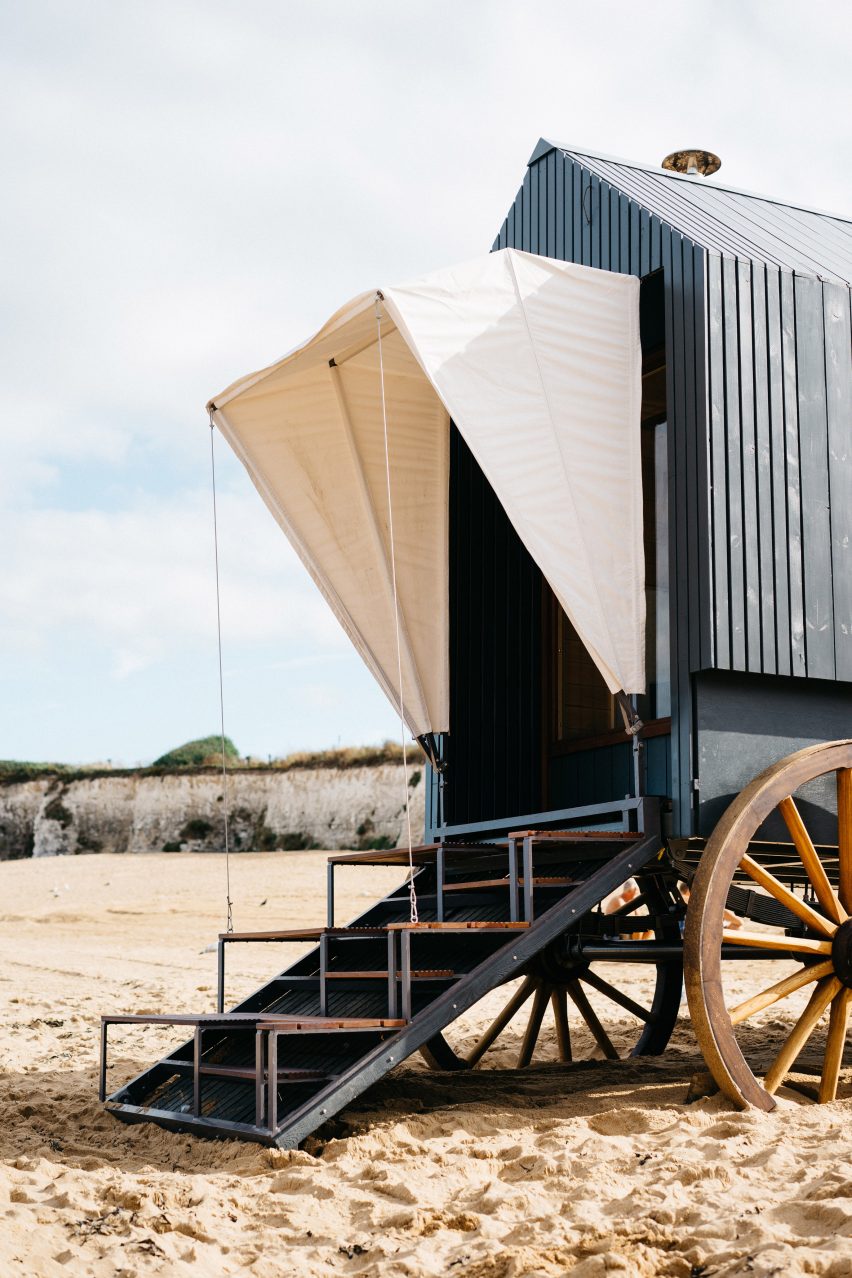
The creators wanted to use materials that were as close as possible to those that would have been used in the Victorian era for the original bathing machines, which offered a space for women to change clothes on the beach.
Housed inside the bathing machine is a wood-burning sauna, offering visitors a place to "sweat out the stresses of the day" before rinsing off in the "seaweed-rich" waters just metres away.
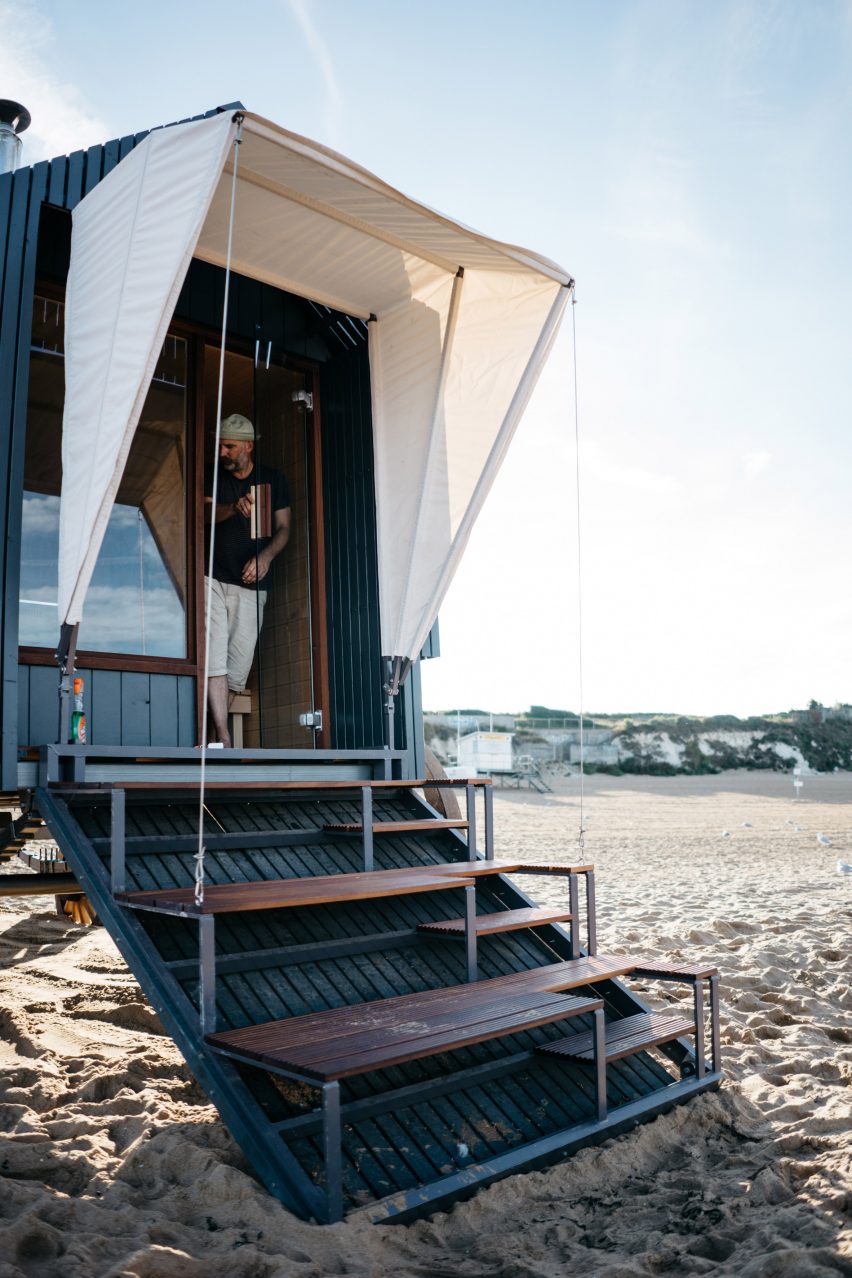
As Haeckels founder Dom Bridges told Dezeen, the initial inspiration for the bathing machine was born from one of his trips to the Blue Lagoon in Iceland.
"I was always amazed by the concept of people bathing in hot water but surrounded by sub-zero temperatures," he explained.
After finding out about Margate's history of sea bathing, and the Victorian machines that were originally used for this, Bridges decided to bring an updated version of these "icons of that era" back to Margate's main sands.
He hopes the bathing machine will give people a reason to spend more time outside during the colder winter months.
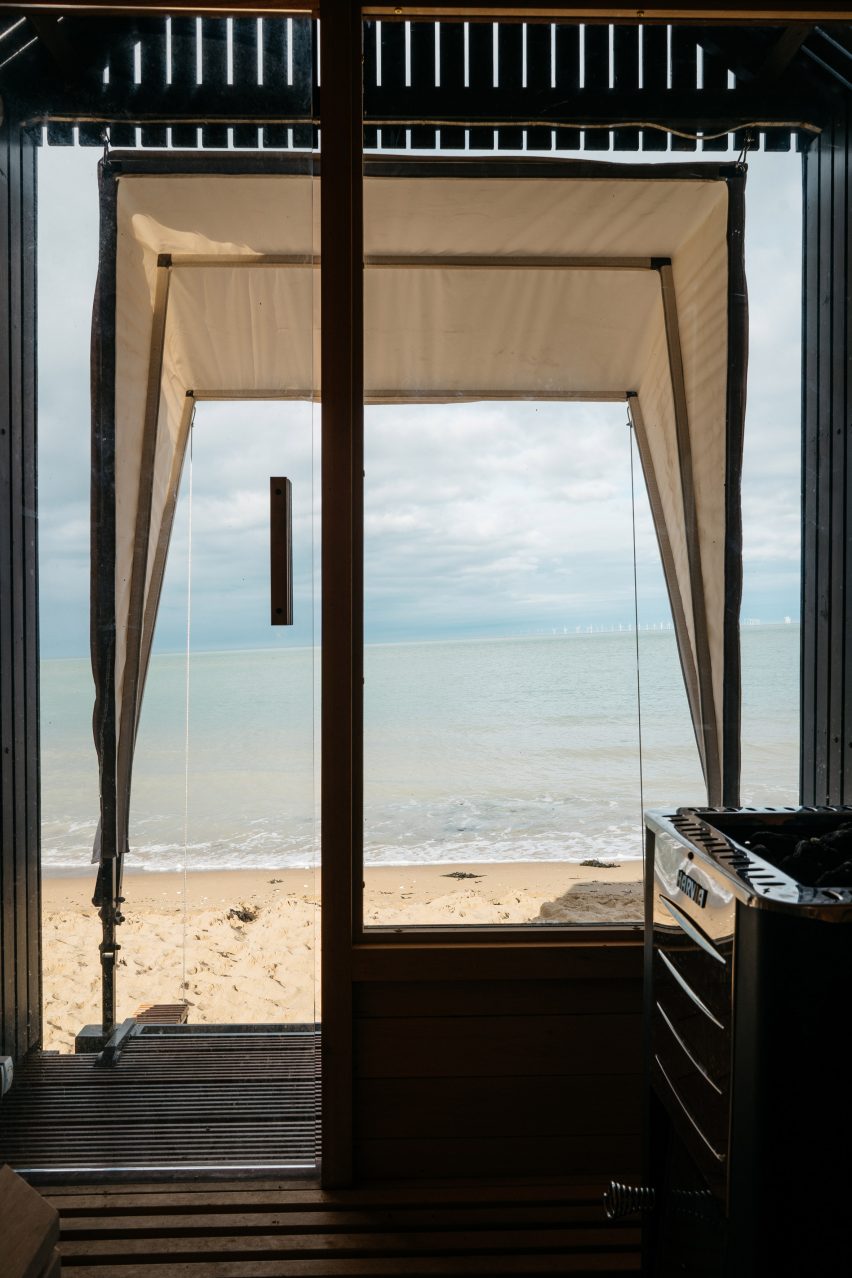
In addition to restoring one of Margate's traditions, Bridges wanted the bathing machine to act as a reminder of the positive health benefits that the area's waters have.
"Margate has a rich history of harnessing the power of the ocean to treat myriad illnesses and ailments, having been home to one of the first sea-bathing hospitals in the UK," said the brand.
"We wanted to return this incredible tradition to the area, give it as a gift to the community to encourage connection and a place to experience the mental and physical benefits of both sauna use and open-water swimming," added Bridges.
"To me, the way to save all coastal towns in decline is wellness," Bridges continued. "Utilising the uniqueness of a coastal town and generating an economy based on location rather than an influx of ideas from other areas."

Haeckels' bathing machine was built with the help of local craftspeople such as architect Chloe Young from Re-Works Studio and joinery company Moosejaw Woodworks, who aided in its construction.
In total there was a team of 20 people, each with specific skills from vehicle engineers and sauna specialists to carpenters and wheelwrights.
The sauna was conceived via a crowdfunding campaign in 2014, which allowed the brand to raise £30,000 towards its making. Each of the donors' names has been laser-engraved onto the side of the machine.
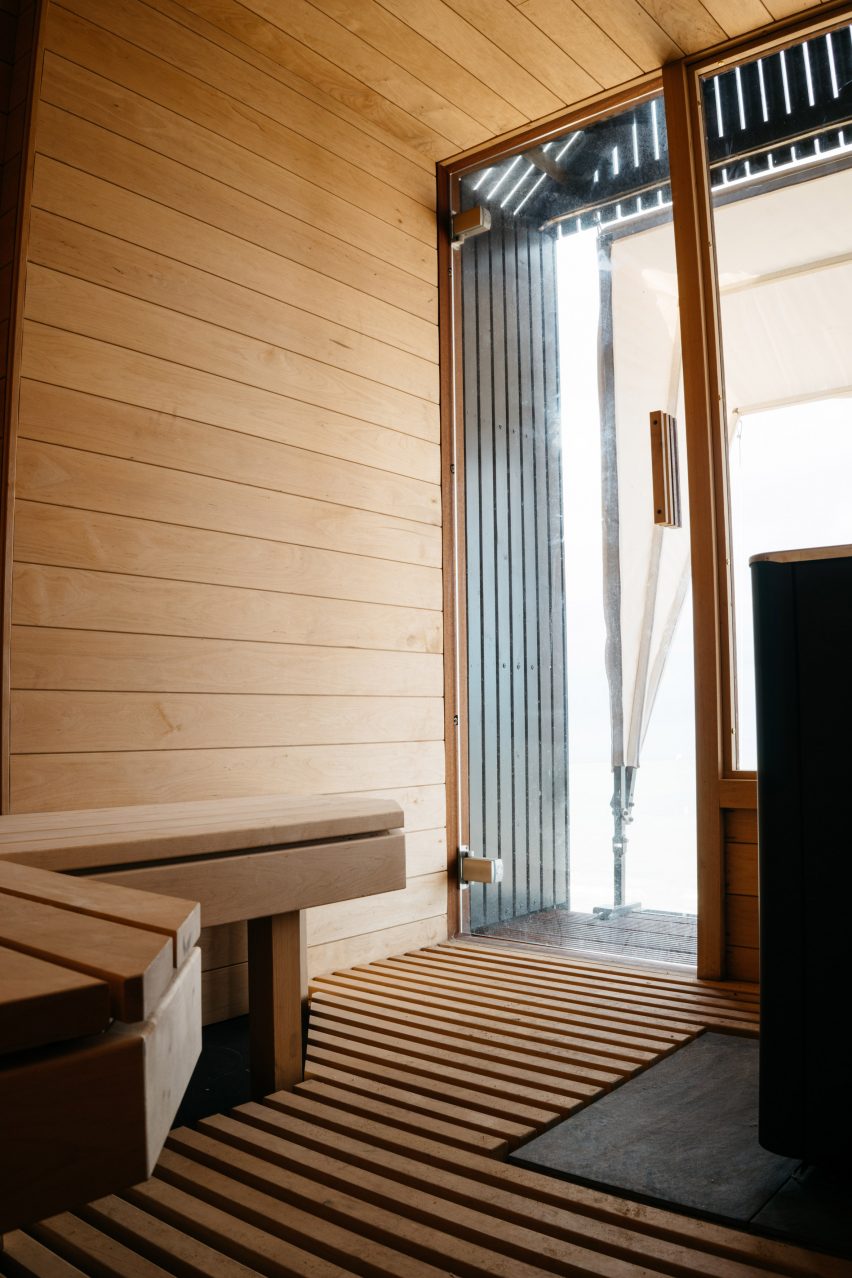
Anyone can use the sauna free of charge, but are encouraged to donate and contribute what they can towards wood supplies, cleaning, maintenance and rent via the brand's account on the Patreon membership platform.
The bathing machine is also available for group hire and personal treatments. More information on daily opening hours and bookings can be found on the brand's Facebook group.
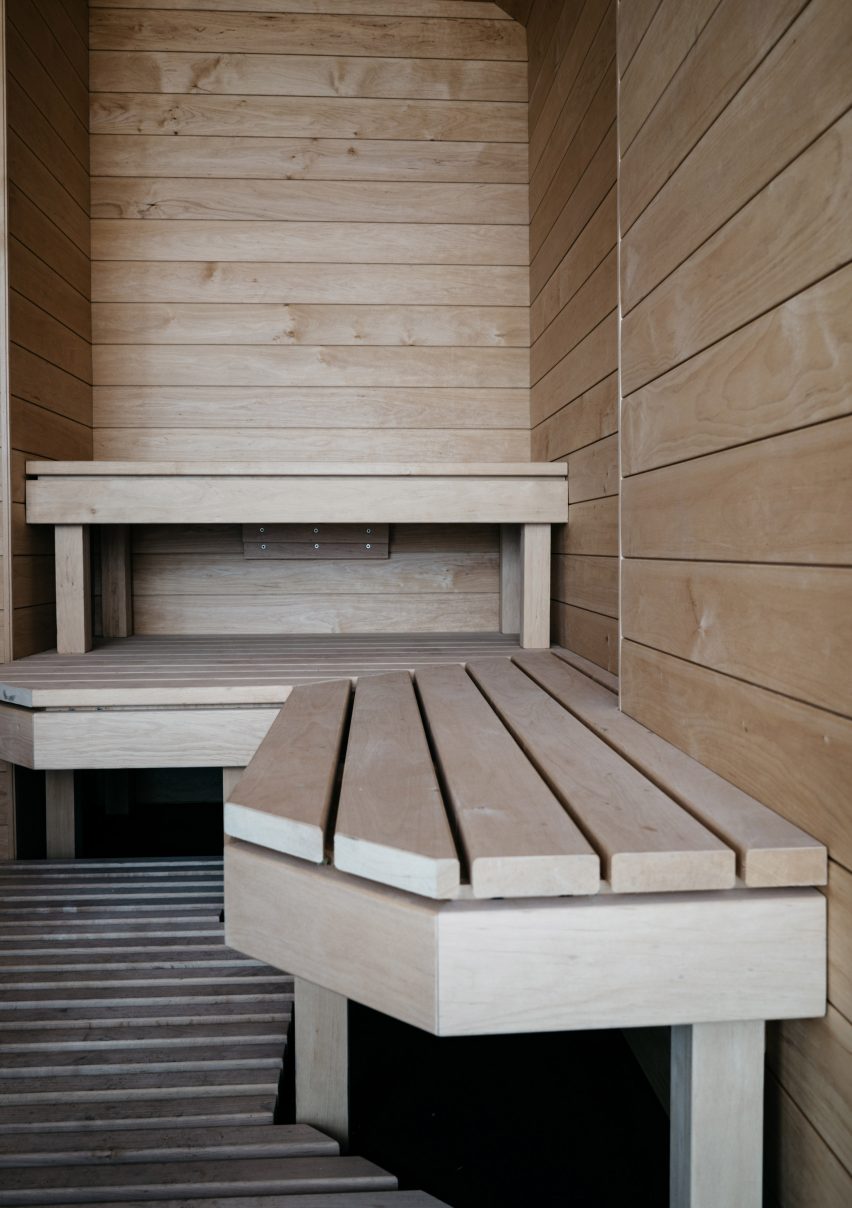
"The bathing machine was always meant to be free," said Bridges. "It was meant to force communion, bring everyone together, force everyone to sit close and discuss, no phones, no social media, just a seat in a sauna and a sprint to the cold water."
"It was always intended as a gift to the town, a gift for everyone and hopefully a way to craft a winter beach economy, a way to get people out during the colder months," he added.
"The audience and usage is universal; it transcends age, nationality and class. It's truly more than I thought it would be, but that's because its free – anyone can cross the threshold and it's amazing what that generates."
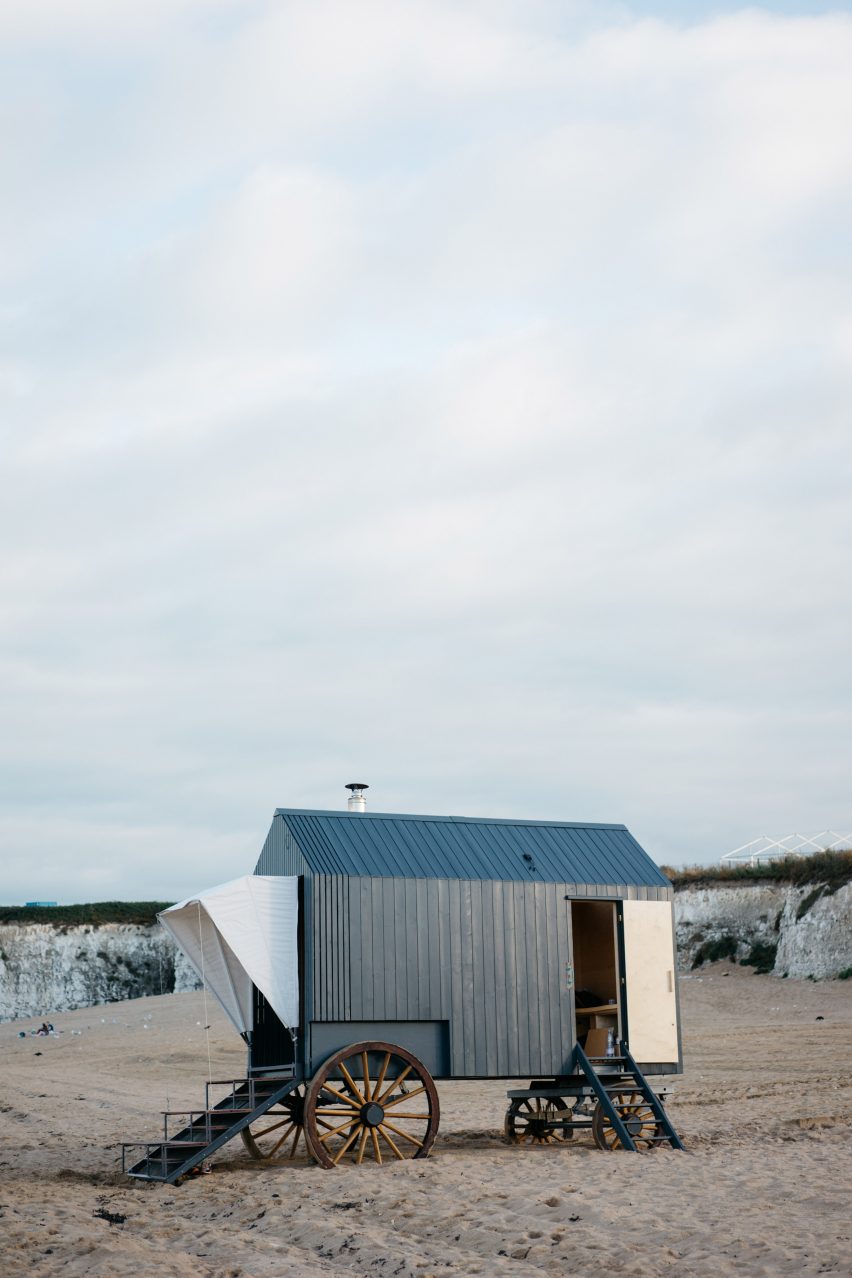
Royal College of Art graduate Louise Nissen also wanted to utilise the health benefits of Margate's seawater with her Sea Sanctuary project.
The conceptual project suggested converting an abandoned lido in the seaside town into a clinic to treat Londoners suffering who are suffering from respiratory illnesses caused by the poor air quality.